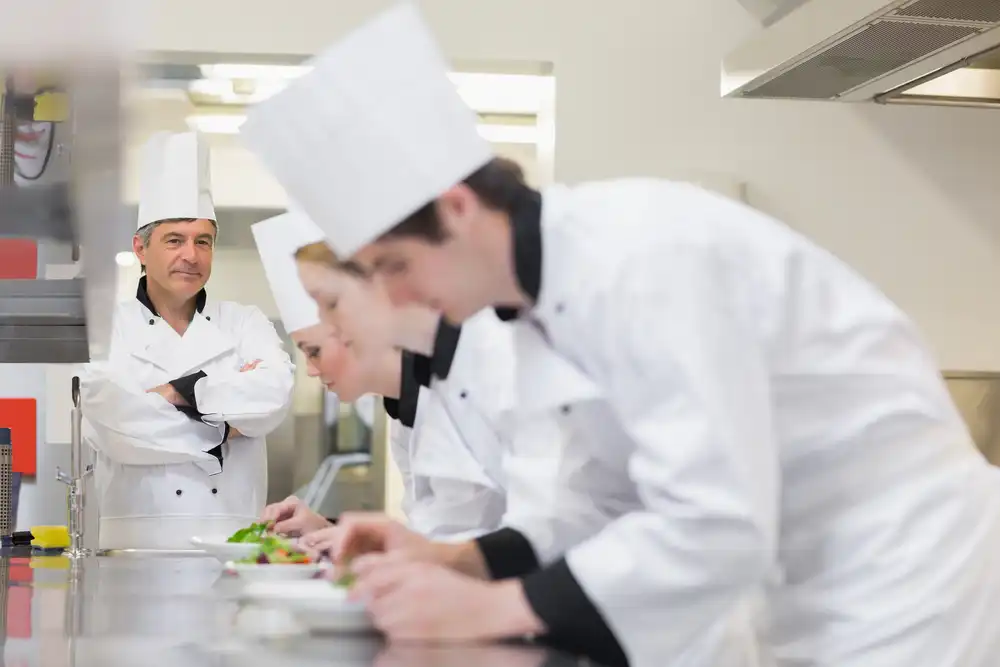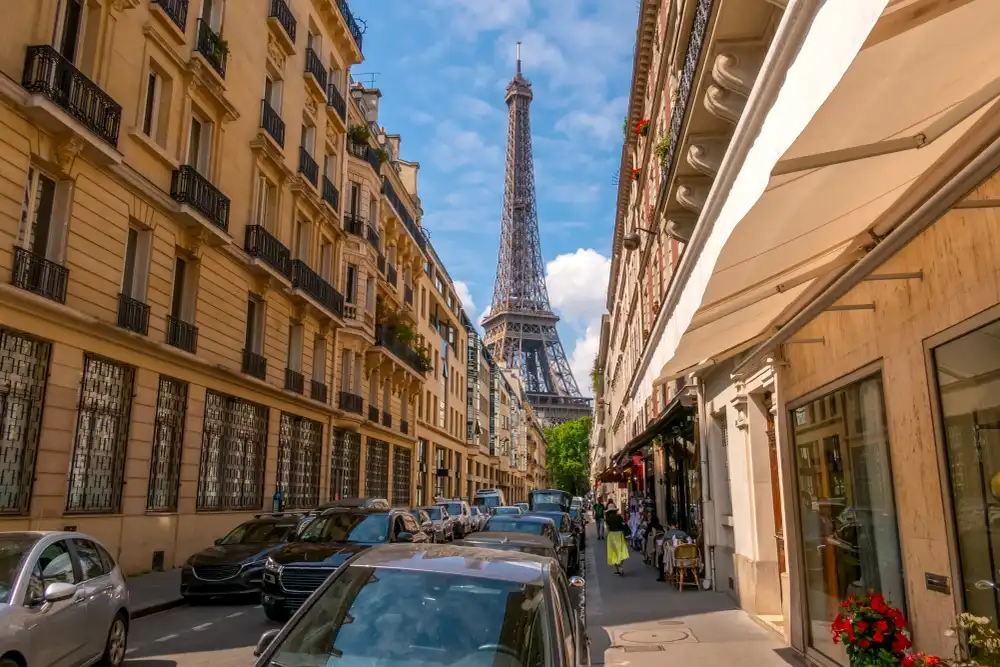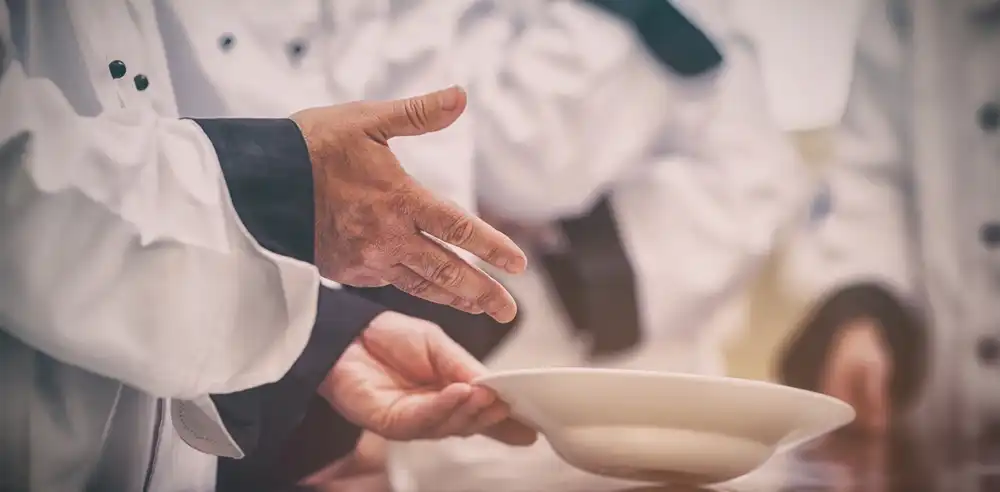The Best Culinary Schools in France for English Speaking Students
Have you been considering culinary schools in France? We've gathered information for some of the best culinary schools in France but beyond that, we've made sure that they offer programs in English.
Syed Asad
loading...

Have you ever seen Ratatouille ? It was an unexpected Pixar hit set in the culinary capital of France, Paris, where a small rat, Remy, tries to make his dream of becoming a chef a reality. If the movie renewed your love for the culinary arts and the only thing you have been able to do is dream of working in Remy's kitchen, this guide is just what you need!
France is world-renowned for its gastronomic operations as well as Michelin-starred restaurants, so it is a very important part of a number of great culinary institutions in the world. These culinary schools in France are renowned for providing comprehensive programs that unify the elements of traditional French cuisine as well as modern trends in this art.
It doesn't matter if you want to master traditional techniques or if you are more into creating new and challenging dishes; France is, in all cases, the place to be that will give you a chance to grow your skills and learn from professional chefs at an elite level.
The best culinary schools in France are the gold standard for culinary education, and a degree from one of these institutions can open doors to a world of opportunities.
Deciding to study in France is a great choice, but it can be difficult to find the right school for you. Questions such as how long is culinary school, how much is culinary school, or even is culinary school worth it might rack your brain and lead you to indecisiveness. This is especially true if you are an English-speaking student who is not fluent in French -- the thought of trying to learn in an expensive culinary arts program when you speak little or no French can be daunting.
Fortunately, there are many culinary schools in France that offer programs in English.
Why Study Culinary Arts in France?
The French hospitality industry is booming, and by 2030, it is expected to have a net worth of around $22.83 billion with a 1.55% growth rate.
The French government gives international graduates with a masters degree a two-year post-study visa, which they can use to get a job in their related field and gain professional experience.
Aside from that, France is home to Michelin-starred restaurants as well as world-class chefs who help students learn in an atmosphere inside a great place where global gastronomy is centered.
It is possible to learn both classical and modern culinary techniques in France, a country that is famous for its good food and pastry arts. The country is no exception to this rule.
Many of the best culinary schools in France have special programs in English, which allow them to be accessible to students from the USA as well as those from other countries.

Top Culinary Schools in France for English-Speaking Students
So you want to learn about cooking in France, but you're not too good at French. No big deal! These schools teach classes in English.
| School Name | Programs Offered | Course Duration | Tuition Fees |
|---|---|---|---|
| Le Cordon Bleu Paris | Cuisine, Pastry, Boulangerie, Wine & Management | 3 months to 9 months | €14,000–€60,000 ($16,000–$68,540 USD) |
| École Ducasse | Culinary & Pastry Arts, Diploma Programs | 2–9 months | €13,677 ($15,625 USD) |
| Ferrandi Paris | Intensive Professional Programs in Cuisine and Pastry | 5 months + internship | €13,900–€24,500 ($15,880–$27,985 USD) |
| Institut Culinaire de France | French Cuisine & Pastry Diploma | 6 months to 3 years | €11,600 ($13,250 USD) per year |
| Gastronomicom | Culinary Arts, Pastry, Baking | 3 months to 1 year | €18,700 ($21,360 USD) per year |
| École Lenôtre | French Pastry & Cuisine Courses | 7 weeks to 6 months | €5,703–€12,500 ($6,515–$14,278 USD) |
| La Cuisine Paris | Short-term workshops in French cuisine and pastry | 1-day to several weeks | €119–€189 ($136–$215 USD) per person |
Scholarships and Financial Aid for International Culinary Students in France
No need to worry if you cannot pay the tuition fees, as the top culinary schools in France provide numerous scholarships to facilitate students in pursuing their passions. These scholarships are intended to support aspiring chefs who are talented but require assistance financially.
Some examples include:
Le Cordon Bleu Paris: The Julia Child Scholarship
The esteemed Julia Child Scholarship is awarded annually by Le Cordon Bleu Paris. It supports aspiring chefs who aspire to work in the culinary arts or hospitality.
The mentors are experienced chefs who offer guidance to the winners of the scholarship. In the past, winners have worked with chefs like Luiz Hara, who specializes in Japanese cuisine. Furthermore, winners and runners-up receive prizes such as professional chef knives and tableware from ZWILLING Company.
École Ducasse: Fondation Auguste Escoffier Scholarship
Another great scholarship is the Fondation Auguste Escoffier. It is intended for students with a passion for cooking and pastry-making who need assistance with tuition costs.
The scholarship supports students in culinary education at École Ducasse who struggle financially. It provides funds to reduce tuition costs, enabling gifted individuals to receive quality culinary training.
Other Financial Aid Options
International students also have other financial support. Erasmus+ grants assist university students from the EU and certain countries studying in France.
Campus France offers scholarships for foreign students. Hospitality organizations and businesses award scholarships to future cooks, providing ample help.
Those keen on studying in France can find financial aid via these scholarships. Each scholarship has clear eligibility and application steps, so it is vital to verify the details with each institution.
How does culinary school work?
Culinary school is a place to learn cooking as a profession, of course, but beyond that, culinary school establishes the basics in kitchen skills and expands to matters outside of the kitchen.
You'll find that the best culinary schools in the world universally teach about:
Knife skills
You'll have to learn how to cut food in many ways, like chopping, slicing, and dicing. You also learn about knives and how to keep them safe.
Cooking methods
The main cooking methods such as making sauces, cutting meats, and preparing pastries. You will be taught about various cooking methods.
Kitchen safety and cleanliness
Kitchens need to be clean so that food is safe. You'll learn how to clean and cook food safely.
Collaboration
Kitchens are often made up of a team of people. You'll learn how to talk to others and make sure that the jobs are done correctly.
Time and task management
Kitchens are often busy and all the food has to be made at the same time. You'll learn how to do many things at once.
Food presentation
The way food looks is just as important as the way it tastes. You'll learn how to arrange the food so that it looks good.

Don't think of culinary school in France as a place just to learn how to cook — it's much more than that. It's about perfecting your skills to work in the best restaurants. You will go from having some talent in the kitchen to being a professional chef with strong skills.
Career Opportunities After Studying Culinary Arts in France
Finishing a top culinary school in France leads to many jobs. You could work at fine restaurants, luxury hotels, or own a business.
Here are ways to start your career in France after culinary school:
Internships and Connections - Top schools have links to restaurants and hotels for students to gain experience.
Join Culinary Groups - Groups like Cuisiniers de France offer mentoring and job leads.
Use Networks for Chefs - Sites like ChefTalk connect chefs for jobs and support.
Check job websites Indeed, LinkedIn, and Monster list culinary job openings.
Learn French - Speaking the language helps in kitchens and in finding jobs.
A chef blends science, art, and precision. In France, chefs are researchers, accountants, artists, and passionate cooks. French food has old ways but is also new. It is a place for future chefs to learn and grow.
When do culinary courses start in France?
In France, many cooking schools have flexible enrollment dates. Some schools start classes every month, while others have sessions in January, April, and September. Short courses running throughout the year make it easy for students to join when they wish.
| School Name | Location | Intake Schedule |
|---|---|---|
| Le Cordon Bleu Paris | Paris | Multiple intakes per year |
| École Ducasse | Paris, Yssingeaux | Multiple intakes per year |
| Ferrandi Paris | Paris | September and January |
| Institut Culinaire de France | Bordeaux | February and September |
| Gastronomicom | Agde | January, April, and September |
| École Lenôtre | Rungis | Monthly intakes |
| La Cuisine Paris | Paris | Year-round |
CEFR and Language Requirements for Culinary Schools in France
In France, culinary schools use the CEFR test to gauge language skills. This system has six levels, from A1 (beginner) to C2 (master). For international students, knowing the CEFR is key to admission.
Most culinary schools with English courses prefer A2 or B1 level. A2 means understanding simple phrases like a primary school kid. If you are able to read the English version of this article without problems, you're likely above A2.
French courses usually require a B1 or B2 level. English speakers aren't obliged to speak French, yet it makes life easier for you during your time in France. You'll communicate better with chefs and get better jobs afterward.
Free online tests can help you check your CEFR level. English speakers often find they meet the bare minimum CEFR proficiency either way.
Final Thoughts
Studying cooking in France offers much more than knowledge. You learn the amazing tastes, methods, and customs related to food. It is a unique encounter that influences the world's cooking.
If you wish to compare culinary schools in other countries, check out our articles on culinary schools in Italy, Switzerland, Mexico, the United States, and Spain.
Lastly, there's nothing wrong with recognizing if you don't currently have the means to study fulltime or travel abroad.
Or possibly, you may simply want to start learning basic to intermediate culinary skills from home, especially before committing to a full program in France.
In that case, consider our article regarding online cooking schools.

Whether you want to be a cook in a fancy restaurant or start your own small café, France is the best place to begin your career. You will receive training from experts and gain real experience working with top chefs. There are great job prospects, and it has a rich food culture.
©2025 Cocina Digital Hospitality Group, Inc. All rights reserved.
No part of this publication may be reproduced, stored in a retrieval system, or transmitted in any form or by any means, electronic, mechanical, photocopying, recording, or otherwise, without the prior written permission of the publisher.
We use cookies to enable you to use our site, understand how you use our site, and improve your overall experience.
Cookies allow us to personalize content, track which pages are most popular and least popular, and provide advertising that may be relevant to you.
Please note that cookies that are essential to the proper functioning of the site are required and cannot be disabled.
They are usually only set in response to actions made by you which amount to remembering your settings, a request for services, such as setting your privacy preferences, logging in, or filling in forms.
As such, they are the only cookies that are enabled by default.
You can set your browser to block or alert you about these cookies.
By continuing to use our site, you accept our use of cookies.